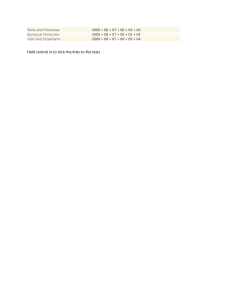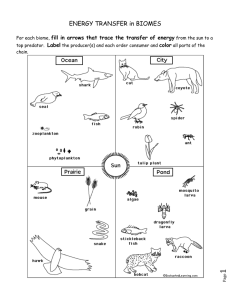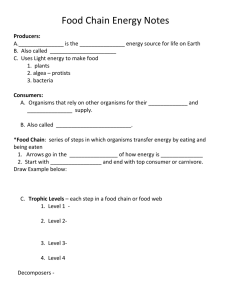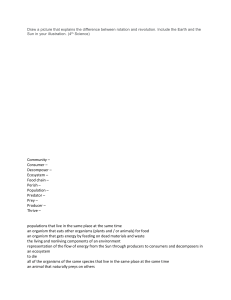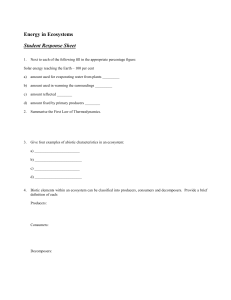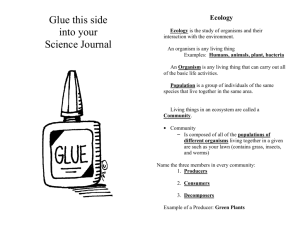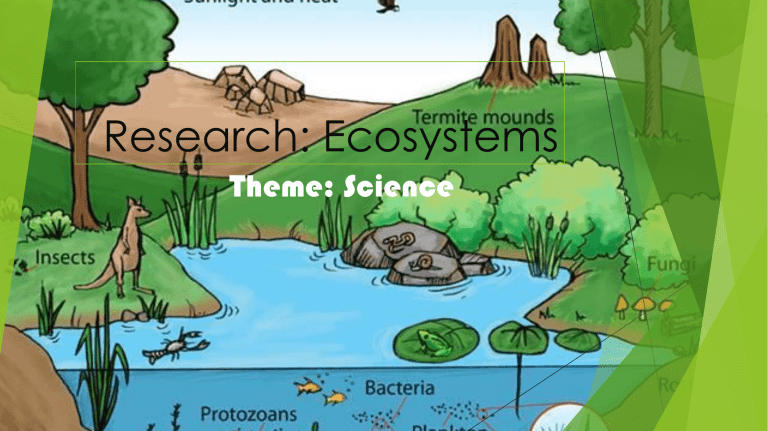
Research: Ecosystems Theme: Science What is an ecosystem? A group of living things interacting with each other and their environment. It can include thousands of different species, or types of organisms. Here, it's brush rabbits, redwoods, and gray foxes, plus countless species of birds, plants, insects, and microbes. Every individual is part of a population: all the members of the same species that live there. And all of the populations in an ecosystem form its community. What is in an ecosystem? Living things: Nonliving things: -rabbits -mountains -foxes -water -fishes -volcanoes -mouses -Soil etc. •Let’s learn more words! etc. Producer On land, most producers are plants. They use most of the energy they get from sunlight to live, grow, and reproduce. And they store the rest of it in their bodies. Consumer When a bunny eats a plant, it gets some of that leftover energy. Since rabbits have to eat, or consume, other organisms to survive, they’re called consumers. If a fox eats a bunny, then it gets some of the energy the bunny got from plants. So, all the energy in ecosystems ultimately comes from the Sun! Decomposer This group includes fungi, like mushrooms, and many microbes, like bacteria. For them, food is dead stuff and poop. Decomposers break all that down and return the nutrients to the environment. If it weren’t for them, nasty stuff would just pile up, like if you never cleaned your rabbit’s litter box! Decomposers recycle the matter back into the soil, water, and air. When organisms die, decomposers break them down and return that carbon to the environment. Scavenger When rabbits eat plants, they can help spread that plant’s seeds. When foxes eat other animals, they leave some scraps behind. Those scraps become food for scavengers, like certain insects. Food Chain & Food Web In ecology, a food chain is a series of organisms that eat one another so that energy and nutrients flow from one to the next. For example, if you had a hamburger for lunch, you might be part of a food chain that looks like this: grass →→cow →→human. But what if you had lettuce on your hamburger? In that case, you're also part of a food chain that looks like this: lettuce →→human.
